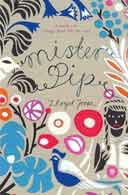
This is a chronicle of the 20th century sewn together by a human narrative. This human (who is, of course, only fictionally human), is Logan Gonzago Mountstuart, born Uruguay 1906, died France 1991.
Over the course of his life he:
*met Picasso, Virginia Woolf, James Joyce, Ernest Hemingway, and other luminaries of the century,
*pissed off the Duke and Duchess of Windsor,
*wrote a couple of books,
*got involved with some Spanish anarchists and acquired a couple of works by Miro,
*was a prisoner of war in Switzerland,
*slept with his mate's girl (and that's not the worst of it),
*married 3 different women,
*narrowly escaped a rape charge,
*met his dead wife's husband,
*lectured at a university in Nigeria during the Biafran War,
*ate dog food,
*got involved in a plot with the Baader-Meinhof Gang, and
*had a threesome with a few pros sometime in his 70s.
Impressive, no?
Any Human Heart is Logan's journal. He goes quite for years, muses endlessly on himself at times, and is remarkably uncritical of himself in the main. Just like any journal you're not supposed to be reading, I read this one with ferocious speed. It was as though, at any moment, Logan might come in and find me trying to shove the book back under his mattress, pretending I'd never seen it.
It's not necessarily great writing, and at least once every 50 pages or so I wanted to punch Logan in the face, but I couldn't put this down. I am certain there are hundreds of historians gnashing their teeth flailing their arms around in despair at this book, so little faith do I have in its accuracy, but none the less, I have learnt to spell Biafran, and that's not shit. What this book achieves is the personalisation of history: It's the same phenomenon as the difference between what you feel if you hear, '83 people died in Blah today when a huge Thing happened', compared with 'My aunt lost her leg today'. It's all about how much you can take it at once. And seeing the 20th century as a 1 man story makes it digestible.
Actually, compiling this list, I realise Boyd has just, pretty much, used violence and conflict as flippers in the pinball game of Logan's life. I guess he could've used inventions, or medical advancements, but then Logan would've been a scientist, and everyone knows writers are way more interesting, darling.
So. Yes. Read. Enjoy.





































